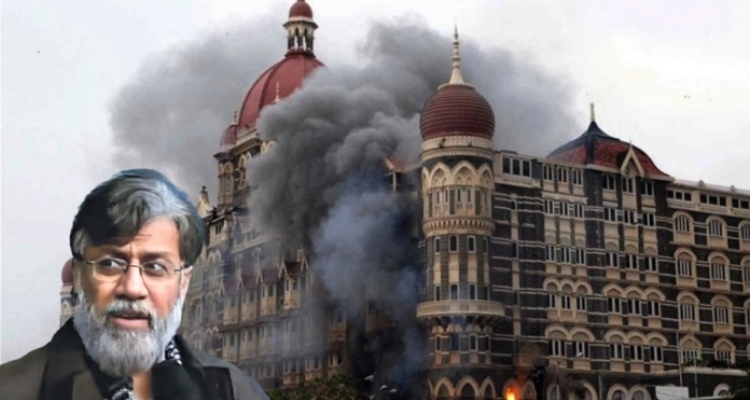
India’s determined pursuit of justice in the 26/11 Mumbai terror attacks case has reached a critical milestone with the extradition of Tahawwur Rana, a key accused in the case.
According to sources, two major factors contributed to this success: strong legal arguments and robust diplomatic engagement.
Legal Challenges
The first major factor was India’s ability to dismantle the defense argument of double jeopardy, a principle that prohibits a person from being tried twice for the same crime.
Rana’s legal team had appealed to the U.S. Supreme Court, urging a review of a lower court’s decision to extradite him, citing this legal protection. However, India, represented by a team of experienced legal experts, successfully argued that double jeopardy must be assessed based on the elements of the crime, not merely the conduct of the defendant.
Indian officials further emphasized that prosecuting Rana under the country’s stringent Unlawful Activities (Prevention) Act (UAPA) would not breach the double jeopardy rule. Their argument held ground, clearing a significant legal hurdle.
Diplomatic Influence
The second contributing factor, sources revealed, was India’s diplomatic clout and its strategic ties with the United States. India’s growing global stature and strong bilateral relationship with Washington played a decisive role in pushing the extradition forward, even in the face of legal resistance.
This combination of legal groundwork and diplomatic negotiation helped India overcome procedural delays and legal complexities that had stalled the process for years.
Case Records Recalled To Delhi Court
In preparation for Rana’s prosecution, the Patiala House Court in Delhi recently received crucial trial court records related to the 2008 Mumbai attacks. These documents, originally held in Mumbai, name Tahawwur Rana and David Coleman Headley as accused and were summoned earlier this year after a request from the National Investigation Agency (NIA).
In January, the Delhi court formally recalled the records following the NIA’s application, signaling a renewed push to move the case forward in Indian courts.
Rana’s Conviction
Tahawwur Rana, a Pakistani-Canadian national, was previously convicted in the United States for providing material support to Lashkar-e-Taiba (LeT)—the terrorist group responsible for the 26/11 Mumbai attacks, which claimed the lives of over 174 people.
Special Prosecutor Appointed For NIA Case
To ensure effective prosecution, the Central government has appointed advocate Narender Mann as a Special Public Prosecutor. He will oversee the trial and related legal proceedings linked to the NIA’s case against Rana.
Rana’s extradition marks a major breakthrough in the long-standing pursuit of justice for the victims of the Mumbai terror attacks and reinforces India’s resolve to bring all perpetrators to justice.
Read More: Supreme Court, Delhi High Court, States High Court, International




